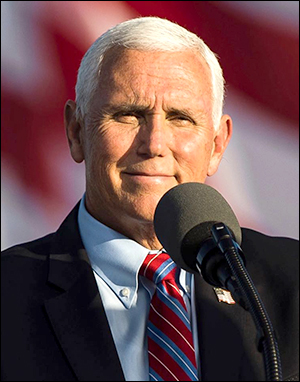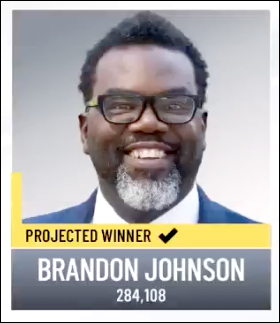By Jim Ellis — Friday, June 30, 2023
President
Wisconsin Poll: DeSantis Pulls Within One of Trump — A new Marquette University Law School regular Wisconsin poll finds an unusual trend developing. In this survey (June 8-13; 913 registered Wisconsin voters; 419 self-identified Republicans; live interview), Florida Gov. Ron DeSantis has pulled to within one point of former President Donald Trump, 31-30 percent in terms of first choice preference, a margin not seen in any other state with the exception of the governor’s home domain. Former Vice President Mike Pence and South Carolina Sen. Tim Scott are third and fourth with six and five percent support.
In a general election pairing with President Joe Biden, Gov. DeSantis pulls to within the polling margin of error, trailing 47-45 percent. Ex-President Trump fares considerably worse. Biden would lead this match-up by a substantial 52-43 percent margin. It remains to be seen if the closeness of this poll is an anomaly, or the beginning of a new trend.
House
MD-6: Ex-Delegate Parrott to Return — Former state Delegate Neil Parrott (R), who twice lost to Rep. David Trone (D-Potomac), announced earlier in the week that he will return for a third congressional run. Rep. Trone has already declared for the state’s open Senate race, meaning the politically marginal western Maryland 6th Congressional District is also open. Post-redistricting, the 6th became more competitive, so Parrott’s 55-45 percent loss to Rep. Trone was an under-performance.In 2024, however, the former congressional nominee will face at least four other Republicans, including a fellow ex-Delegate, Brenda Thiam. Five Democrats have announced for the seat, including two sitting Montgomery County state Delegates, Joe Vogel and Lesley Lopez. In the general election, this seat could evolve into a toss-up race.
OR-5: 2022 Nominee Posting Big Dem Primary Lead — Freshman Oregon Republican Rep. Lori Chavez-DeRemer (R-Happy Valley) scored one of the biggest upset victories of the 2022 election cycle when she defeated Democratic nominee Jamie McLeod-Skinner (D) to capture the 5th District seat with a 51-49 percent margin. McLeod-Skinner had unseated then-US Rep. Kurt Schrader in the May Democratic primary.
In a politically marginal district that the FiveThirtyEight organization rates D+2, three credible individuals have already declared their candidacies, state Rep. Janelle Bynum (D-Happy Valley), Oregon Metro Council President Lynn Peterson, and former congressional aide Kevin Easton. McLeod-Skinner confirms she is “seriously considering” running again, and now is releasing an early June poll that posts her to a big lead in a hypothetical Democratic primary among the four early contenders.
According to the GBAO Strategies’ poll (May 30-June 1; 400 likely Democratic OR-5 primary voters), McLeod-Skinner would lead Bynum, Peterson, and Easton, 50-9-5-4 percent. No numbers were released for how any of these Democratic candidates would pair with Rep. Chavez-DeRemer. In any event, we can expect another close general election race here in 2024.
UT-2: Trouble Brewing — A story is running in the Salt Lake Tribune newspaper that special Republican Party convention winner Celeste Maloy, legal counsel to resigning Rep. Chris Stewart (R-Farmington), may not have met the legal requirements to become a candidate. During her time in Rep. Stewart’s DC office, she did not vote in Utah, thus was placed on the inactive voter list. She re-registered in Utah after the special election candidate filing deadline. During her time living in Virginia, she registered to vote and cast ballots in Old Dominion elections.
Republican Party officials say there is no requirement to be a qualified voter to compete in the special election, but state law appears to say something quite different. Some of the Republican candidates who failed to win the recent party convention may file a lawsuit to overturn the results.
At this point, it appears that two candidates, former state Rep. Becky Edwards and ex-Republican National Committeeman Bruce Hough, may meet the petition signature requirement to enter the special election primary that is scheduled for Sept. 5. The special general is calendared for Nov. 21. Rep. Stewart will resign his seat on Sept. 15.





